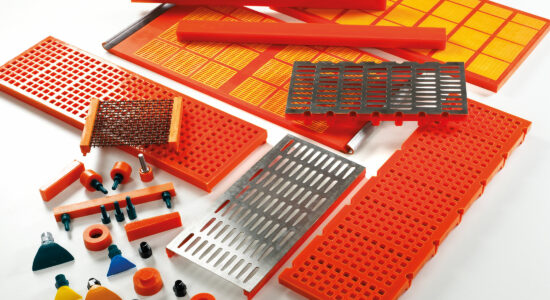STEINHAUS – POLYURETHAN screen panels have been the epitome of reliability and durability for many years.
In 1968, STEINHAUS GmbH presented the first industrially manufactured polyurethane screen to the public. This was followed in 1976 by the first system screen panel, another world first.
2022 saw the premiere of the world’s first self-centering, magnet-based system screen “STEINHAUS MLock”.
Wide range of possibilities
Steinhaus screen panels are available in many different variations. In addition to polyurethane sieve trays, Steinhaus also offers sieve trays made of corrosion-resistant and wear-resistant steels and steel-reinforced polyurethane.
They are used to separate solid mineral raw materials such as sand and gravel, hard rock, coal and ores, chemical products, foodstuffs and many other substances – in screening machines, centrifuges and filters.
A wide range of accessories for Screening Machines, wear-resistant linings and fan spray nozzles round off the range of screen plates.
The requirements for a screen plate vary greatly depending on the application. This is why Steinhaus offers the optimum screen for every application and often combines different series on a single screening machine.
UNI2000 system screens KOMBIPLAST® system screens Polyurethane flat screens Polyurethane tensioning screens
Frame screens made of polyurethane Accessories for Screening Machines made of polyurethane Rubber screens
UNI 2000 system sieves
UNI 2000 system screen decks made of highly wear-resistant polyurethane are standardized modules with component dimensions of 100 – 400 mm width and lengths of up to 1000 mm.
Their design makes them a Steinhaus all-rounder. Larger open screen surface & optimum side attachment. Here are some of the advantages and possibilities:
- Installation is easy with the STEINHAUS tongue and groove system. The screens can be inserted into the adapter strips with little effort so that they cannot swing.
- The sieve plate can be installed and removed without dismantling the side grille.
- The sieved material cannot run over the front and damage the sieve.
- The side wear strips can be provided with drainage holes.
- Due to the much narrower blind zone of the UNI 2000, this system offers a much larger open area than any other commercially available modular screen with standard side rails. This largely eliminates component misalignment.


KOMBIPLAST® system sieves
KOMBIPLAST® has been Steinhaus’ tried and tested system screening surface since 1976. It is attached to the screening machine using an expansion anchor system without an adapter bar. The steel industry in particular, which uses highly wear-resistant linings up to 15 mm thick, has been relying on this tried and tested system for over 40 years.
The components are inserted into the substructure with no effort at all. The fastening pins are then hammered in, connecting the screen panel to the screening machine in a vibration-proof manner. To remove a screen panel, the inner part of the fixing pin can be knocked out with a mandrel. The expansion anchor is now released and the screen panel can be removed without force.
In the grid dimension of the half-brackets, bumper strips or deflector pins can simply be used instead of the fixing pins.
An L-profile is used as the substructure, which is drilled every 150 mm (or every 75 mm for particularly heavy applications).
The sides are fixed in the classic way with wedge strips and wedges. Alternatively, narrow edge strips can also be inserted using the plug-in system, in which case the wedge strips do not need to be removed to change the screens.


Polyurethane flat screens
Polyurethane flat screens are bolted to the screening machine or connected with wedges to prevent vibration.
Steinhaus manufactures the flat screens in all hardnesses, sizes and hole shapes to suit every screening machine.
Flat screens are often used on dewatering screening machines or in very heavy-duty applications. It is often very easy to convert wire screens or slotted screens with polyurethane flat screens.
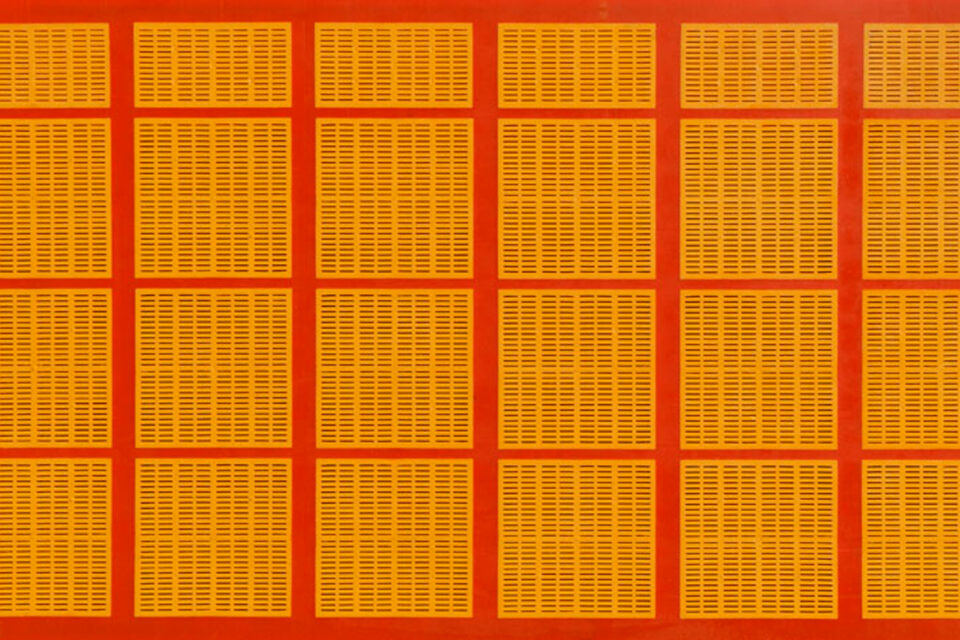
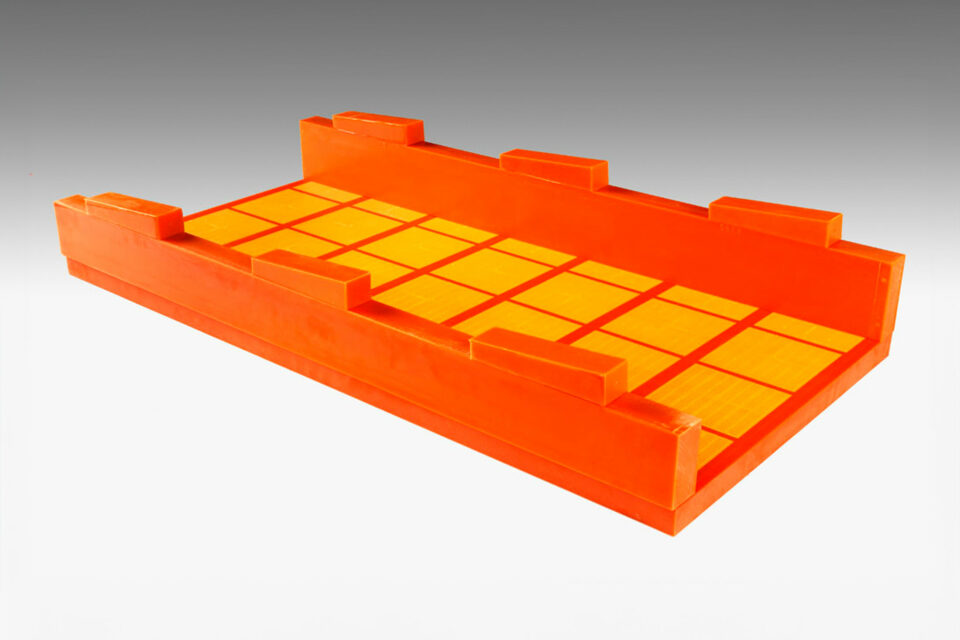
Polyurethane tensioning screens
Polyurethane tensioning screens are connected to the screening machine either crosswise or lengthwise by means of a tensioning device.
Steinhaus manufactures tensioning screens in all hardnesses, sizes and hole shapes to suit every application.
Polyurethane tensioning screens are used on appropriately designed screening machines. As a rule, these tensioning screens can be used to convert screening machines from wire screens to polyurethane screens without the need for conversion.

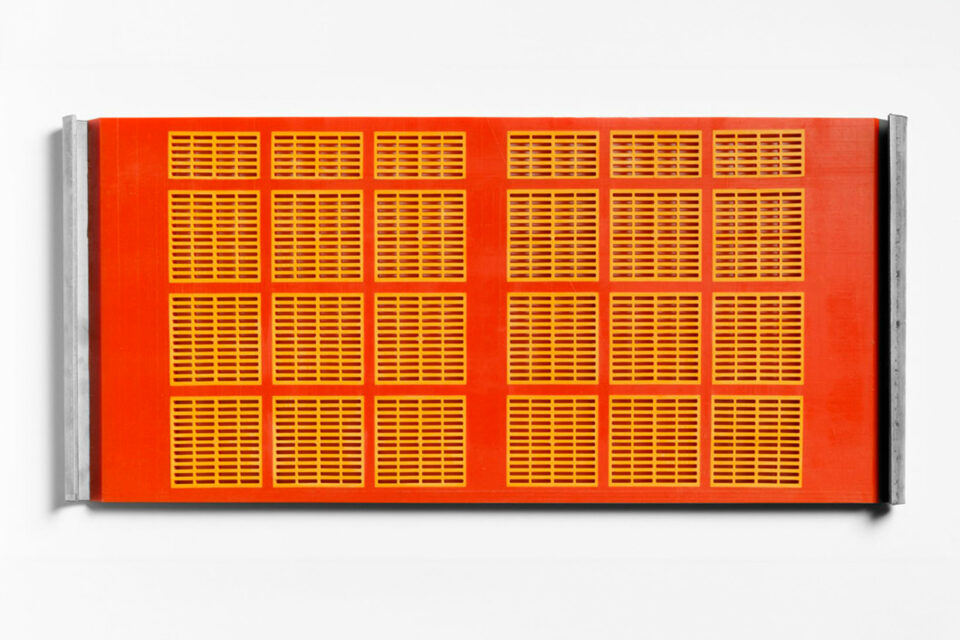
Frame sieves made of polyurethane
Frame screens made of polyurethane are bolted to the machine or connected with wedges to prevent vibration.
A polyurethane frame screen panel consists of a welded steel frame to which the actual polyurethane screen is cast directly. Steinhaus manufactures the frame screens in all hardnesses, sizes and hole shapes to suit every application. Frame screens are used in setting machines, for very heavy-duty screening tasks or when the screen itself is the load-bearing element of the machine.


Accessories for Screening Machines made of polyurethane
STEINHAUS sieve tray accessories made of polyurethane / plastic / steel are an ideal addition to optimize the use of your sieve trays.
These include:
- Side & center mounting rails
- Self-supporting side clamping strips for UNI 2000 system
- Clamping strips
- Profile strips
- Wedge strips & wedges
- Bumper strips & deflector pins
- Wear plates
- AQUAPLAST fan nozzles
- and much more
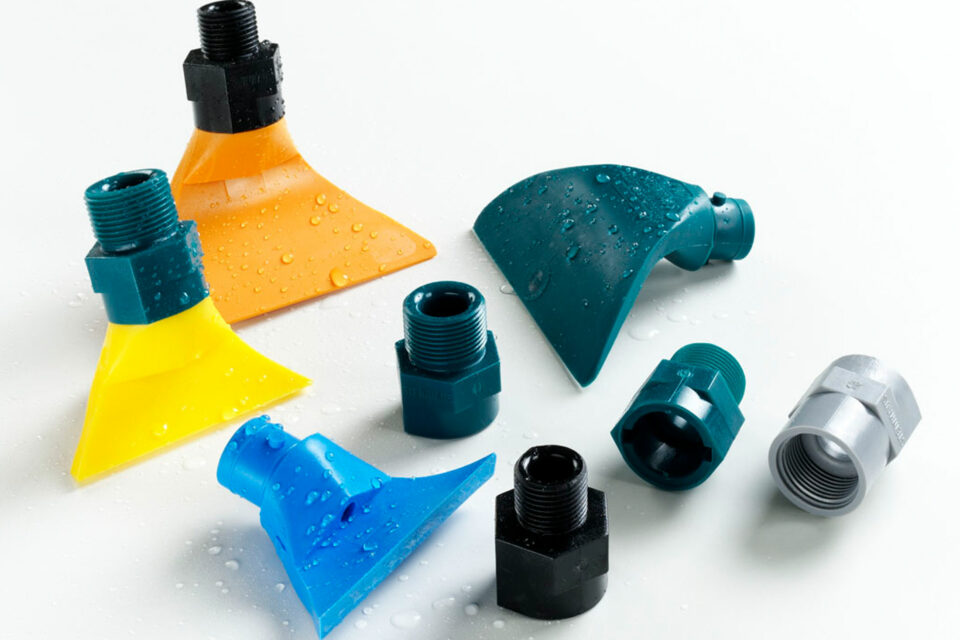
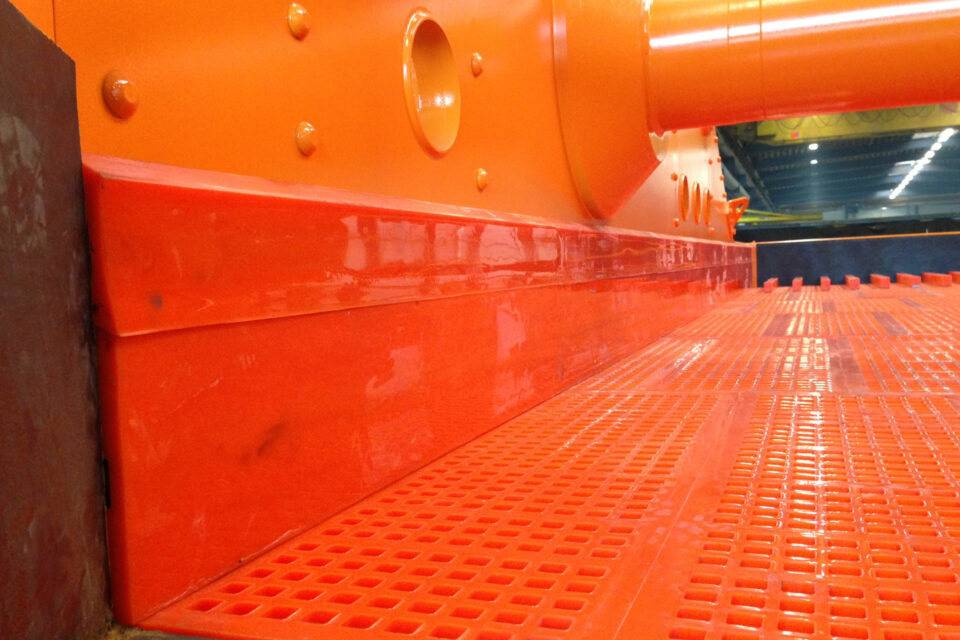
About STEINHAUS GmbH
Our German sister company, STEINHAUS GmbH, specializes in components and equipment for a wide variety of applications.
The product range includes steel, rubber and polyurethane screen panels, perforated plates, rolled baking oven belts & CLEANBELT ®, wire conveyor belts, OPTIMA wedge wire screens, precision filter tubes & centrifuge baskets, industrial filters, MULTOTEC Process Equipment, as well as LuCoTec air spring systems.

SIEBTECHNIK TEMA on site
Find the right contact for your region.
How can we help you?
We have the right solution for every task. And if not, we’ll work with you to find one. Get in touch with us!
Our specialists will be happy to advise you individually on site or remotely, and are available to answer any questions you may have. Send us a message using our


